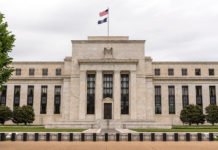Market movers today
Today markets will zoom in on HICP inflation data for the euro area. Country releases from yesterday were somewhat lower than expected indicating the euro area total will end up around 3% from 4.3% in September. The Spanish and German data did give some promising signs with regards to core inflation pressures in the euro area.
At the same time, we get the first GDP estimate for Q3 from Eurostat, which will likely show close to a standstill in economic activity in Q3.
In the US, the employment cost index for Q3 will hold valuable information to policy makers on price pressures. We also get Conference Board consumer confidence.
Overnight, we will look out for Chinese Caixin manufacturing PMIs. The similar official measure came in lower than expected this morning at 49.5 in October (consensus 50.2).
The 60 second overview
Bank of Japan. The Bank of Japan (BoJ) tweaked its yield curve control policy (YCC) at a meeting ending this morning by redefining the 10-year rate cap as a reference rather than a rigid bound and thus also removed a pledge to defend this level with offers to buy an unlimited amount of bonds at the 1% level. A story indicating a tweak of the YCC moved USD/JPY from 149.7 to 149.0 levels already yesterday. This morning, markets sold the fact again on announcement and traded the cross back to 150. JGB yields have sold off and 10-year yields now trade 5bps closer to the rate cap at 95 bps. As we see it, this was another, likely the last, step ahead of dismantling the YCC altogether. However, the BoJ still needs confirmation that inflation has sustainably moved above the 2% target before they are ready to take bigger steps to normalisation. They are slowly recognising higher inflation is not temporary and moved their inflation forecast significantly higher, particularly for the fiscal year 2024 (starting in April) to 2.8% from 1.9% back in July.
European data softens. Inflation figures from Spain and Germany released yesterday, came in below expectations, pointing to softening inflation across the Eurozone. Seasonally adjusted German HICP fell 0.2% m/m in October, while the Spanish HICP pace halved to 0.3% from 0.6% in September. Core CPI details were also weaker in general. Meanwhile, the first release of Q3 GDP data showed Germany contracting by 0.1% q/q, highlighting the weakness of economic growth in the region. Private consumption was the main drag on growth, according to the Federal Statistics Bureau, while investments in equipment and machinery showed some improvement.
UAW strike ends. Yesterday, GM and the United Auto Workers Union (UAW) was said to have reached a tentative deal to end the six-week strike. GM has agreed to raise the hourly pay by 25% over the course of a four-year deal, which is very similar to the terms in deals struck by Ford and Stellantis last week. If ratified by the UAW, this will mark the end of the first co-ordinated strike at the three largest US car-makers.
Equities: What is a better start to the week than a Monday rebound. There were no clear drivers behind the sudden optimism, aside from S&P500 hitting correction territory on Friday. In fact, US yields even rose during the session. While the Nordic and European session was a modest one (Stoxx 600 only up 0.4%) the US bounce was forceful. Dow closed up 1.6% and S&P 500 1.2%. Cyclicals led this, with banks and communication among the better groups. The sentiment is weakening in Asia this morning after weak China PMIs and Bank of Japan abandoning yield curve control. Chinese equities almost -2% lower but Japan 0.5% higher.
FI: EGB yields fell slightly yesterday as weaker-than-expected inflation figures from Spain and Germany provided some support to the segment. However, the rally was mostly reversed in the afternoon. 10Y Bund yields ended the day down by 1bp, while 10Y BTP yields fell by 7bp. Markets are now pricing in 82bp worth of ECB cuts next year, up from 66bp before the ECB meeting last week. The long end of the UST curve was to some degree supported by the downward revision of the US Treasury’s expected net borrowing until the end of the year (see FI section). The BoJs decision to soften the YCC policy has added upward pressure on long JGB yields this morning, with the 10Y tenor up by 5bp to 0.95%.
FX: EUR/USD zig-saws around 1.06 whilst USD/JPY moved back above 150 on the BoJ YCC tweak. Scandies continues to trade weaker in tandem with NOK/SEK at 1.00. Brent oil is back below USD 90/barrel after a 3% drop yesterday.
Credit: Credit spreads tightened modestly yesterday where iTraxx Xover tightened 4.8bp and Main 0.9bp. There was barely any activity in the primary market, but SEB saw solid demand for its EUR500m 5y green SNP offering, which attracted orders of more than EUR2bn.
Nordic macro
Riksbank Governor Thedeén spoke in New York last night and repeated the message that whatever the Riksbank decides at the November meeting the repo rate will remain “high for long”. He expressed worries about the weak SEK and services prices making inflation “sticky”. This is nothing new though. We note that the current SEK weakening in KIX terms is just about average for the 15 years during which the SEK has been depreciating between 1993 and 2022, hence 2023 is nothing special. Neither did he mention Riksbank’s semi-annual business survey which suggests household-near companies are planning to slash prices. We stick to our guns of a no hike in November, for now.














